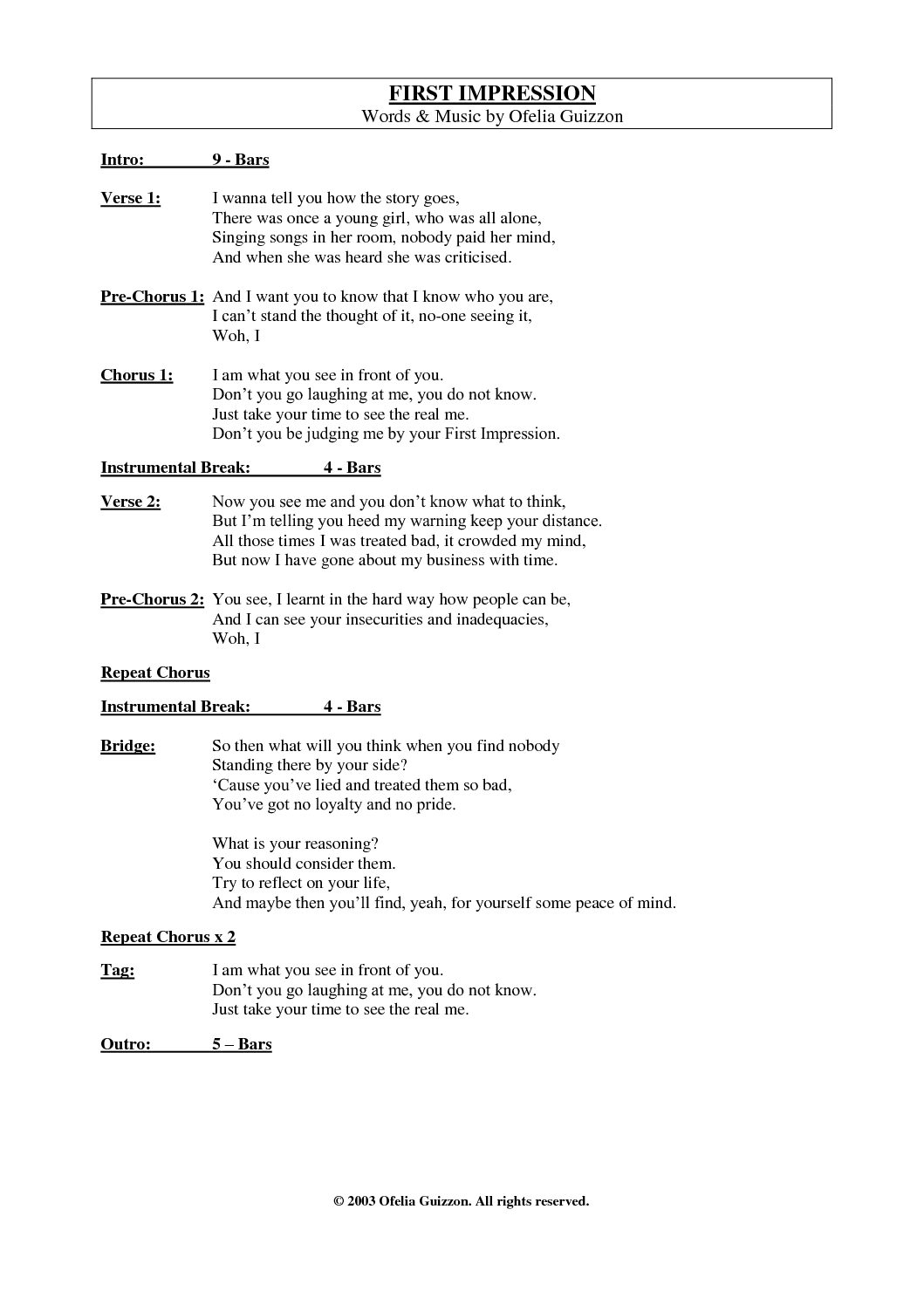Song lyrics are a set of words that make up a song. The words are meant to be sung. The writer of lyrics is a lyricist or lyrist. The lyricist of traditional musical forms such as Opera, is known as a librettist. .
The lyric of a song is written with purpose and is sung by the vocalist so there is an expectation that it be sung clearly and with feeling so that the messsage or story of the song is conveyed.
The importance of song lyrics can be dependant on the style of song. If you are singing a dance piece, the lyric will more than likely be less important than if you were singing an inspirational ballad.
With contemporary music, there is the freedom of interpretation where the vocalist can vocal adlib adding embellishments such as melissmas, scats, trills etc… fantastic… but the body of the song remains. Have a look at the song “I Will Always Love You” written by Dolly Parton in 1973. In 1992 the song became an international hit with the version recorded by Whitney Houstin for the movie “The Bodyguard”. If you were to play the melody of this piece according to the original sheet music, it has fairly straight phrasing and little embellishment. Have a listen to how Dolly Parton sings the song. Then compare it to how Whitney Houston interprets the song. Vocally, there is an obvious difference but the core of the melody and essence of the song are fundamentally the same… the lyrics are the same, the structure of the song is the same, the chord progression is the same though Whitney Houston sings the song in A, and Dolly Parton in Ab.
I have worked with vocalists who give no importance to the lyric and pay little attention to knowing exactly what the lyric of a song is making up words, singing jibber and ultimately, giving little justice to the song. It would be disappointing for me to attend a live performance of Shirley Bassey, Tina Turner or Beyonce, for example, and hear them singing non-sensical lyric song after song… that’s unacceptable, unprofessional and displays a lack of discipline and at that league of entertainment, it wouldn’t happen.
As a singer who performs covers, a sense of responsibility and respect comes with singing other people’s songs. There is also a set standard that has already been outlayed by the recording of the song and if the audience is familiar with the recording, they have an expectation of what they want to hear when listening to another artist cover that song. If you were to perform a cover and make up lyrics etc, the audience will not appreciate this and a lot of people, will take offense. “What, does the singer think I’m stupid? I’m trying to sing along and they are singing the wrong words.” I have heard people in the audience listening to a singer and being displeased with the performance because the singer wasn’t singing the song properly in that they were either singing the wrong lyrics, singing out of tune or losing their place in song. In a karaoke or fun amateur singing environment, this is acceptable, but in a professional environment you would not expect to experience this. Of course, song paradys or spoofs are the exception.
In conclusion, what is the relevance of song lyrics? The lyric of a song is part and parcel of the song. The lyric of a song is just as important as the melody. People like to sing along; people take a message with them from the lyric of a song; people make their own interpretation of the lyric of song whether they relate it to their own experience or something else; the lyric of a song has the ability to evoke excitement, memories and all sorts of emotion. As a singer, one of our jobs is to sing the song lyric. Simple… know your song lyrics, understand the meaning and convey it in your performance.


